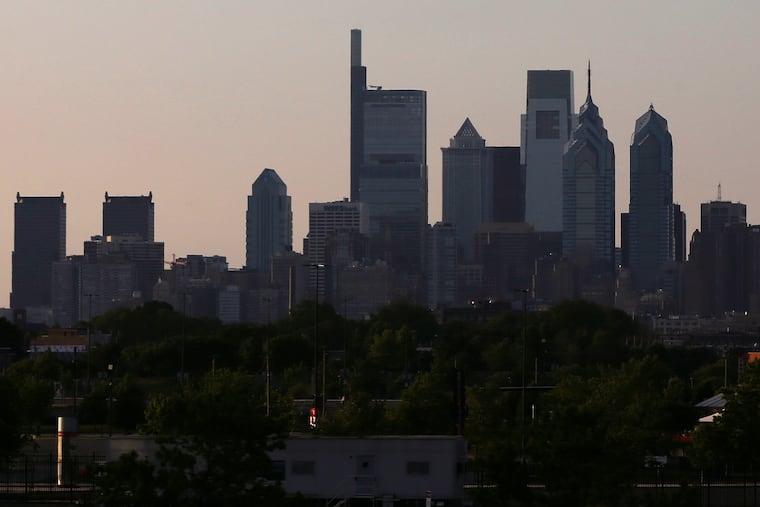Philly has fewer businesses per capita than other big East Coast cities, report says
The city also had the lowest number of Black-owned firms in relation to Black residents, and huge racial disparities in business ownership.

Philadelphia faces the additional challenge of having fewer businesses per capita than other big cities as it tries to rebound from the recession caused by the coronavirus, a new report shows.
Businesses are crucial for job creation, noted the report released Thursday by the Center City District and Central Philadelphia Development Corp. Among five major East Coast cities, Philadelphia had the lowest number of businesses per 1,000 residents in 2017. The city also had the lowest number of Black-owned firms in relation to Black residents, and large racial disparities in business ownership.
The report stresses the importance of “business density” as the city faces a jump in unemployment, which skyrocketed to 17.7% in June from 5.7% a year earlier. The report also links the city’s low business density to its high poverty rate -- 24.5% in 2018 -- since the city lags in creating firms that produce jobs.
“We obviously believe that investing in education and job training is essential to poverty reduction. There’s no doubt that’s one side of the equation,” said Paul Levy, president and CEO of the Center City District, a business improvement district. “We have to focus equally, if not greater, on growing businesses.”
Philadelphia had 12.1 businesses per 1,000 residents, putting the city behind Atlanta, New York, Boston, and Washington, according to the report, which used data from the U.S. Census Bureau’s Annual Business Survey from 2018, the most recent available. Atlanta had the most with 24.6 firms per 1,000 residents, more than twice as many as Philadelphia. New York had 22.4, followed by Boston (18.6) and Washington (17.1).
Despite having the second-largest Black population, Philadelphia had the lowest number of Black-owned businesses per capita, with 1.8 firms per 1,000 Black residents. Washington had the most with five Black-owned firms per 1,000 Black residents, closely followed by Atlanta’s 4.7. New York had 3.4 Black businesses per capita and Boston had 2.5.
If Philadelphia had as many Black-owned businesses for every 1,000 Black residents as Washington, the number of Black-owned firms in the city would nearly triple from 1,174 to 3,329, the report said.
Like the other four cities, Philadelphia had large racial disparities in business ownership. Among all racial and ethnic groups, the highest rate of business formation was among Asians, with 30 firms per 1,000 Asian residents. Philly had 21.6 white-owned firms per 1,000 white residents, compared to 3 Hispanic-owned and 1.8 Black-owned businesses per capita.
The report did not offer a conclusive explanation for these disparities, but it noted the Philadelphia metropolitan area is more decentralized than the other regions, with fewer jobs concentrated in the city. The lower concentration of jobs correlates with lower workforce participation rates, the report said, as Philadelphia had the lowest percentage of residents over the age of 16 who work full time at 37%.
“We’re looking at, here, lower business density city vs. suburbs, and particularly, if you’re looking at a lower-income population that does not own cars, access to the suburbs is hard,” Levy said. “That just compounds the problem, the disconnect between where people without cars and probably lower incomes are in relation to where jobs are in the region.”
Another factor could be the level of investment in local programs to promote minority business, the report said. In fiscal year 2021, Washington will spend $6.60 per capita on programs for small and minority business development, compared to $0.59 per capita in Philadelphia, $0.92 in New York, and $3.43 in Boston.